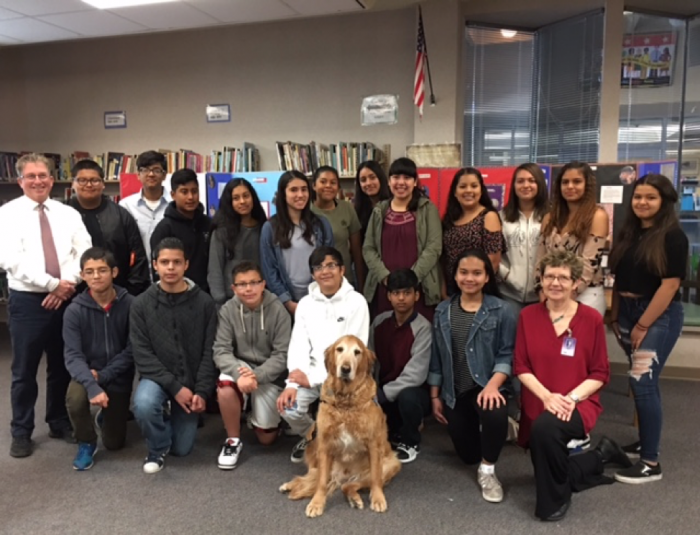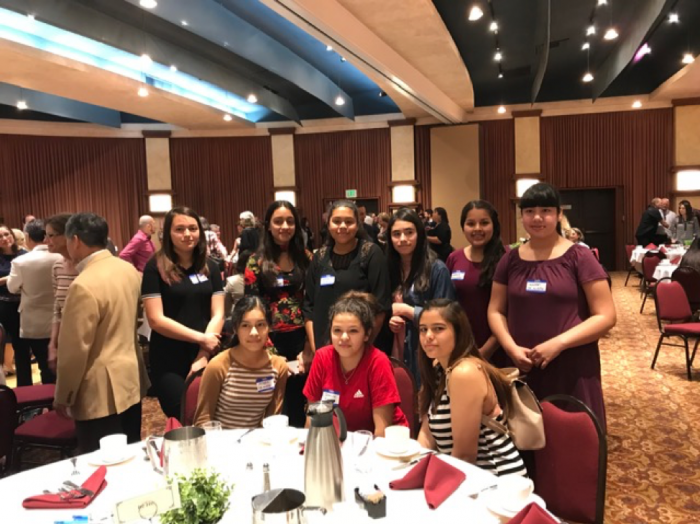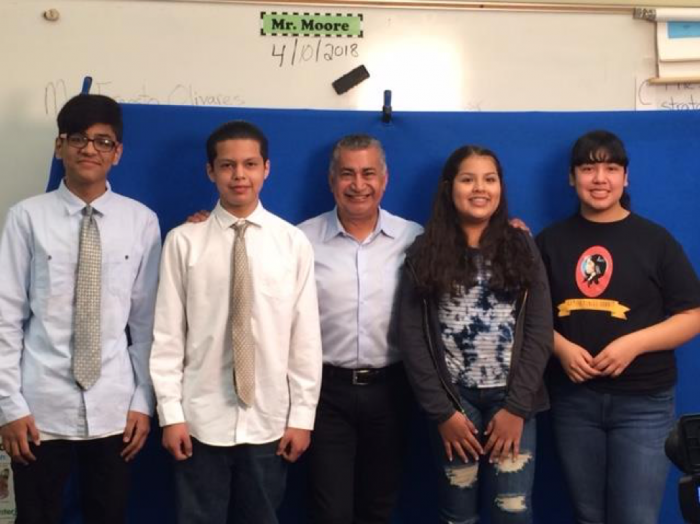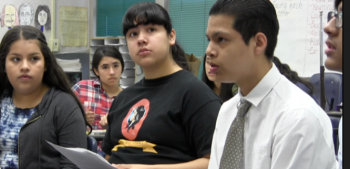Background
To empower Latinx middle schoolers, eighth-grade teachers encouraged students to envision themselves as leaders by interviewing Latinx leaders in their community about how they overcame obstacles and successfully navigated the path to adulthood.
Level: Classroom
Grade Level: 8
Location: Santa Rosa, CA
Goals
- Connections between families and the school will be built as students interview their parents about overcoming hardships and their hopes for their children.
- Students will strengthen their academic skills by integrating speaking, listening, writing, technology and arts.
- Cross-cultural alliances on the school campus will be strengthened through the display of student multimedia projects in public spaces.
Measures
- A pre- and post-awareness assessment will evaluate student attitudes about and awareness of community leadership opportunities.
- Students will write reflections throughout the project.
- The interviews will be graded with a standards-based rubric.
Grantee Reflection
“I believe that by interviewing four local Latinx leaders, as well as family members, the students could actively imagine their own future in a brand-new light, one that gives them the courage to step past hardships of life to become leaders themselves as they grow up.” —Bonnie Raines
Procedure
Interested? Here's how you can implement this project in your classroom.
- Review interview skills with students, such as active listening, asking follow-up questions, showing engaged body language and maintaining eye contact.
- Help students design open-ended interview questions, such as:
- “What was it like learning a second language?”
- “What were you like in eighth grade?”
- “What advice do you have for eighth graders?”
- Have students practice their interviewing skills and active listening.
- Choose 4–6 students to serve on an interview panel for each speaker. Have the panel introduce the speaker. You may ask students to dress formally. Have students gather behind the panel in a half-circle.
- Ensure that students articulate their learning throughout the project by writing responses to their interview experiences. They may write reflections on their learning, thank you letters, write-ups about of home interviews or poetry about leadership qualities.
- Devise a format for the interview days. Clarify expectations regarding the videotaping of the interviewee, selecting a co-worker or another adult if necessary.
- Document your students’ responses throughout the process in debriefing interviews, video footage of interviews and photos.
- Have students synthesize their learning by arranging for a showcase where they bring together their experiences into a visual format to be shared.
- Invite parents, teachers, administrators, community people to the showcase and have students share their displays and articulate their learning to visitors.
Related Resources
Spotlight and interview videos
Photos





Feel free to utilize this database for reference and inspiration, but keep in mind that the best (and most competitive) grant applications will use original ideas to impact the specific needs of your students.
